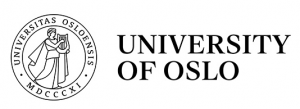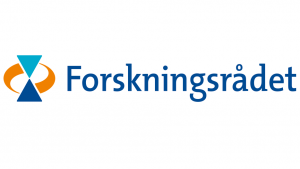Postdoctoral Fellow: Deporting Foreigners: Contested Norms in International Practice (NORMS)
Applicants are invited for a position as Postdoctoral Fellow at ARENA Centre for European Studies at the University of Oslo. The appointment as a postdoctoral fellow is for 24 months, without duty work (see details under “responsibilities”). The position is available from 1 January 2022 – 31 December 2023.
ARENA is a highly renowned centre for research on the transformation of Europe, in particular on the processes of political change. It aims at theoretically founded and innovative research. ARENA offers a stimulating intellectual environment for cooperation and scholarly debate and has a staff of well-qualified and committed scholars. The centre and its research projects have received excellent evaluations. The working language at ARENA is English.
The fellowship is part of the project “Deporting Foreigners: Contested Norms in International Practice (NORMS)”, which is funded by the UTENRIKS programme of the Research Council of Norway (2021-2024). NORMS is an international research project with partner institutions in Norway, the Netherlands and Ethiopia, led by Senior Researcher Erlend Paasche at the Norwegian Institute for Social Research. The Postdoctoral Fellow’s contact person at ARENA will be Research Professor Helene Sjursen.
Deportation of irregular migrants and rejected asylum seekers is widely known to pit host states against these migrants, but deportation also pits host states against these migrants’ origin states. Conceptualising this as a conflict of interests, legal scholars and political scientists have focused on the incentives and coercion used by the host state to elicit the rational compliance of the origin state. In the NORMS project, we look at how state agents from host and origin states alike seek to legitimise or de-legitimise deportation, promoting competing norms in a contested policy field. We take a practice-oriented and cross-country comparative approach to these norm dynamics. The comparative design includes two host states (Norway and Sweden) with differing policies and policy debates, as well as four distinct states of origin (Afghanistan, Iraq, Somalia and Ethiopia). Complementing this analysis, a Postdoctoral Fellow will examine norm dynamics at the supranational level within the EU agency Frontex.
The task for the Postdoctoral Fellow will be to analyse norm dynamics within Frontex based in part on the narratives of Norwegian and Swedish police officers who have participated in return operations carried out by the agency.
Frontex plays an increasingly central role in immigration law enforcement in Europe. One of the core activities of the multinational agency is to support EU+ member states in returning irregular migrants, coordinating return operations and implementing return decisions taken by national immigration authorities. By Frontex’ own account, return operations are among the most challenging activities that it undertakes.
This is the rationale for studying norm dynamics within Frontex in the empirical context of its return operations. Drawing in part on interview data and narrative analysis, what normative ideas of police professionalism are said to guide the interpretation of formal guidelines? How are norms linked with professional identity and cultural values? How are they promoted and contested by police officers who work closely together in joint operations but come from heterogenous organizational cultures? More broadly, such questions touch upon more fundamental questions regarding the optimal degree of autonomy of Frontex from EU+ member states, the accountability of Frontex as an EU agency, and the risks and benefits of an EU agency that some see as transitioning into a centralized European border police corps.
The Postdoctoral Fellow will be expected to conduct a minimum of 30 interviews with Norwegian and Swedish police officers who have participated in return operations carried out by Frontex, and to produce two academic papers for peer-reviewed international journals and two policy briefs. The Postdoctoral Fellow will also be expected to consider other sources of data and analytical approaches that complement the interviews and narrative analysis, and to contribute to the NORMS coordination team with a set of project-related tasks, including
- Dissemination of research results to decision-makers, practitioners and the wider public
- Editorial work on the project blog and newsletter
- Co-organization of academic, policy and public events
- Participation in project workshops and in meetings with the project's advisory board.

